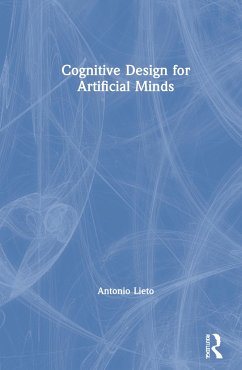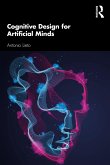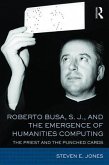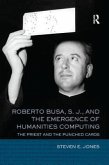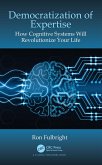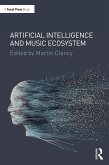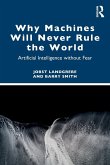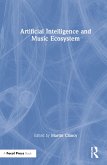Cognitive Design for Artificial Minds explains the crucial role that human cognition research plays in the design and realization of artificial intelligence systems, illustrating the steps necessary for the design of artificial models of cognition. It bridges the gap between the theoretical, experimental, and technological issues addressed in the context of AI of cognitive inspiration and computational cognitive science.
Beginning with an overview of the historical, methodological, and technical issues in the field of cognitively inspired artificial intelligence, Lieto illustrates how the cognitive design approach has an important role to play in the development of intelligent AI technologies and plausible computational models of cognition. Introducing a unique perspective that draws upon Cybernetics and early AI principles, Lieto emphasizes the need for an equivalence between cognitive processes and implemented AI procedures, in order to realize biologically and cognitively inspired artificial minds. He also introduces the Minimal Cognitive Grid, a pragmatic method to rank the different degrees of biological and cognitive accuracy of artificial systems in order to project and predict their explanatory power with respect to the natural systems taken as a source of inspiration.
Providing a comprehensive overview of cognitive design principles in constructing artificial minds, this text will be essential reading for students and researchers of artificial intelligence and cognitive science.
Beginning with an overview of the historical, methodological, and technical issues in the field of cognitively inspired artificial intelligence, Lieto illustrates how the cognitive design approach has an important role to play in the development of intelligent AI technologies and plausible computational models of cognition. Introducing a unique perspective that draws upon Cybernetics and early AI principles, Lieto emphasizes the need for an equivalence between cognitive processes and implemented AI procedures, in order to realize biologically and cognitively inspired artificial minds. He also introduces the Minimal Cognitive Grid, a pragmatic method to rank the different degrees of biological and cognitive accuracy of artificial systems in order to project and predict their explanatory power with respect to the natural systems taken as a source of inspiration.
Providing a comprehensive overview of cognitive design principles in constructing artificial minds, this text will be essential reading for students and researchers of artificial intelligence and cognitive science.
"How does the human mind work? And how can we build artificial systems that display intelligent behavior? These two questions lie at the core of cognitive science and artificial intelligence (AI), respectively. While they have been treated independently from each other in the recent past, Lieto argues here that the two fields have a common history and that it is time to rebuild the bridge between cognitive science and AI[...] In his book, Lieto proposes the minimal cognitive grid (MCG) as a novel evaluation tool to assess the degree of biological/cognitive plausibility of artificial systems [...] Lieto also argues that the MCG provides a more useful evaluation tool than the famous Turing test and other evaluation approaches from the literature, since it is less subjective and language-dependent. Looking forward, Lieto also identifies several applications where a renewed collaboration of AI and cognitive science seems promising, including areas such as unsupervised machine learning and commonsense reasoning[...]. Lieto's book is a valuable resource for researchers in both AI and cognitive science. Parts of this book may well be used in courses on cognitive AI". - ACM Computing Reviews Review #: CR147311
"A must-read! Antonio Lieto's book proposes a very original exploration on the connections between AI and Cognitive Science modelling methods and techniques. It brings some harmony to the cacophony of current AI approaches and becomes a sort of guiding light for further exploration." - Prof. Yiannis Aloimonos, Professor of Computer Science at the Department of Computer Science of the University of Maryland, College Park, USA.
"This book by Antonio Lieto is indeed timely. A call for the re-unification (or just collaboration) of artificial intelligence and cognitive science is very much needed. While the two have been, by and large, going their separate ways, the cross-fertilization between them has never ceased. It is now time again to place much more emphasis on the intersection between artificial intelligence and cognitive science and their eventual (possible) re-unification." - Prof. Ron Sun, Professor of Cognitive Science at Rensselaer Polytechnic Institute, Troy, New York, USA.
"The design of AI systems can clearly be improved by using what we know about natural intelligence, in particular if we want to build systems that interact with humans. Antonio Lieto's book presents an excellent and updated overview of cognitively oriented design methods and will be a rich source for students and researchers in computer science and cognitive science." - Prof. Peter Gärdenfors, Professor of Cognitive Science at Lund University, Sweden, Fellow of the Cognitive Science Society, Member of the Nobel Prize Committee in Economics (2011-2017)
"Antonio Lieto's book "Cognitive Design for Artificial Minds" suggests the necessary interplay between the "Science of Artificial" and the "Science of Natural." The book combines historical analysis with the description of new methods of cognitive design. It also summarizes the successful cognitive architectures. Cognitive Design for Artificial Minds is a big step towards integrating researchers' methods and communities of artificial and natural minds." - Prof. Péter Érdi, Henry Luce Professor of Complex Systems Studies, Kalamazoo College, Michigan, USA
"Deep learning has unlocked new paths towards the emulation of the peculiarly-human capability of learning from examples. This bottom-up approach, however, is only one of the many ways we perform reasoning. This wonderful book by Antonio Lieto discusses how we can emulate other kinds of reasoning, e.g., those based on top-down learning, by attempting to re-build the bridge that used to stand firm between Cognitive Science and AI" - Prof. Erik Cambria, Associate Professor in Computer Science at the Nanyang Technological University of Singapore.
"A must-read! Antonio Lieto's book proposes a very original exploration on the connections between AI and Cognitive Science modelling methods and techniques. It brings some harmony to the cacophony of current AI approaches and becomes a sort of guiding light for further exploration." - Prof. Yiannis Aloimonos, Professor of Computer Science at the Department of Computer Science of the University of Maryland, College Park, USA.
"This book by Antonio Lieto is indeed timely. A call for the re-unification (or just collaboration) of artificial intelligence and cognitive science is very much needed. While the two have been, by and large, going their separate ways, the cross-fertilization between them has never ceased. It is now time again to place much more emphasis on the intersection between artificial intelligence and cognitive science and their eventual (possible) re-unification." - Prof. Ron Sun, Professor of Cognitive Science at Rensselaer Polytechnic Institute, Troy, New York, USA.
"The design of AI systems can clearly be improved by using what we know about natural intelligence, in particular if we want to build systems that interact with humans. Antonio Lieto's book presents an excellent and updated overview of cognitively oriented design methods and will be a rich source for students and researchers in computer science and cognitive science." - Prof. Peter Gärdenfors, Professor of Cognitive Science at Lund University, Sweden, Fellow of the Cognitive Science Society, Member of the Nobel Prize Committee in Economics (2011-2017)
"Antonio Lieto's book "Cognitive Design for Artificial Minds" suggests the necessary interplay between the "Science of Artificial" and the "Science of Natural." The book combines historical analysis with the description of new methods of cognitive design. It also summarizes the successful cognitive architectures. Cognitive Design for Artificial Minds is a big step towards integrating researchers' methods and communities of artificial and natural minds." - Prof. Péter Érdi, Henry Luce Professor of Complex Systems Studies, Kalamazoo College, Michigan, USA
"Deep learning has unlocked new paths towards the emulation of the peculiarly-human capability of learning from examples. This bottom-up approach, however, is only one of the many ways we perform reasoning. This wonderful book by Antonio Lieto discusses how we can emulate other kinds of reasoning, e.g., those based on top-down learning, by attempting to re-build the bridge that used to stand firm between Cognitive Science and AI" - Prof. Erik Cambria, Associate Professor in Computer Science at the Nanyang Technological University of Singapore.

